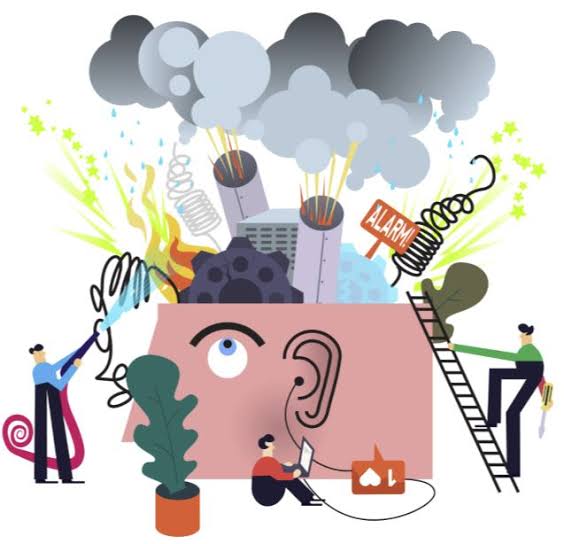#mentalhealth
#MentalHealthAwarnessMonth
Post-Traumatic Stress Disorder (PTSD) is a mental health condition that can happen to people who have gone through a very upsetting or scary event. It can be caused by things like war, accidents, abuse, or disasters.
#MentalHealthAwarnessMonth
Post-Traumatic Stress Disorder (PTSD) is a mental health condition that can happen to people who have gone through a very upsetting or scary event. It can be caused by things like war, accidents, abuse, or disasters.

Types of PTSD:
🌟 Acute PTSD: This type occurs within three months of a traumatic event and typically lasts for a short duration.
🌟 Acute PTSD: This type occurs within three months of a traumatic event and typically lasts for a short duration.
🌟 Chronic PTSD: It persists for more than three months and may continue for years after the traumatic experience.
🌟 Delayed-Onset PTSD: Symptoms do not manifest immediately and can arise months or even years after the traumatic event.
Causes of PTSD:
🌟 Traumatic Events: Exposure to or experiencing actual or threatened death, serious injury, or sexual violence can trigger PTSD. Examples include combat, accidents, natural disasters, or assault.
🌟 Traumatic Events: Exposure to or experiencing actual or threatened death, serious injury, or sexual violence can trigger PTSD. Examples include combat, accidents, natural disasters, or assault.
🌟 Childhood Trauma: Traumatic experiences during childhood, such as abuse or neglect, can contribute to the development of PTSD later in life.
🌟 Personal Factors: Certain individual characteristics, such as a history of mental health disorders, family history of PTSD, or an overly sensitive stress response, may increase vulnerability to developing PTSD.
Symptoms of PTSD:
🌟 Intrusive Thoughts: Recurring, distressing memories or nightmares of the traumatic event.
🌟 Intrusive Thoughts: Recurring, distressing memories or nightmares of the traumatic event.
🌟 Avoidance Behavior: Efforts to avoid places, activities, or people that remind them of the trauma.
🌟 Hyperarousal: Heightened state of alertness, easily startled, difficulty concentrating, and irritability.
🌟 Negative Mood and Cognition: Persistent negative emotions, guilt, shame, distorted thoughts about oneself or the world, and loss of interest in previously enjoyed activities.
🌟 Emotional Reactivity: Exaggerated emotional responses, including feelings of anger, fear, or a sense of detachment from others.
🌟 Sleep Disturbances: Insomnia, restless sleep, or frequent nightmares.
🌟 Flashbacks: Feeling as if the traumatic event is recurring, often accompanied by physical and emotional distress.
@threadreaderapp unroll
• • •
Missing some Tweet in this thread? You can try to
force a refresh

 Read on Twitter
Read on Twitter








